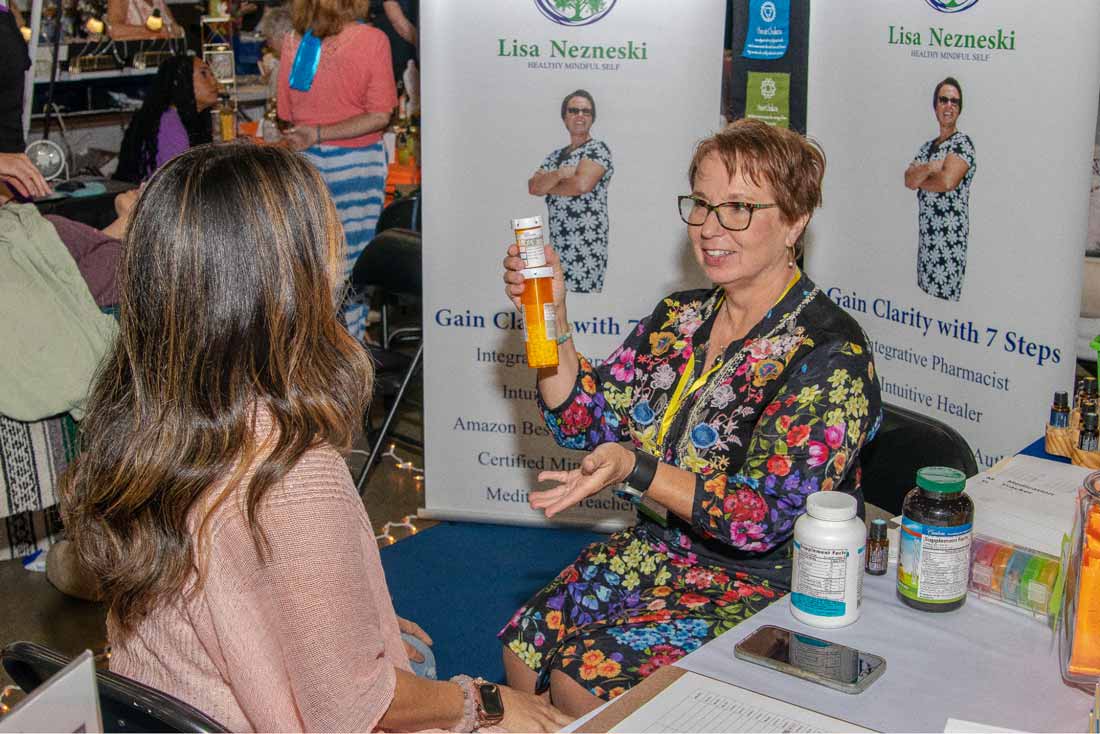Around three-quarters (76%) of Americans are grappling with the health effects of stress, such as headaches, fatigue and feelings of anxiety or depression, according to the American Psychological Association. Lisa Nezneski is no stranger to that. At one point in her life, she says she was an extremely busy hospital administrator with five departments and hundreds of employees reporting to her.
One morning, Nezneski woke up at 2 a.m. with severe chest pain. Fearing a possible stroke, which ran in the family, she went to the emergency room immediately. Her vital signs, such as blood pressure, oxygenation and EKG reading, were mostly normal, she recalls, but whenever she would have chest pain, her heart rate would drop, reaching a dangerously low 28 beats per minute.
“I looked at my significant other at the time, and said, ‘This could be it. Tell the kids I love them. I don’t want to miss my life.’ I started to take big, deep breaths, and my heart rate started recovering. We later found out it was caused by stress,” she says.
This episode started Nezneski’s journey into mindfulness. Her health scare led her to begin questioning everything in her life. She realized that by asking herself questions, she was able to identify which things were important and unimportant in her life, helping her to manage stress better.
Nezneski has written three books: Grounded in Chaos, which tells her life story in narrative verse, Seven Mindful Questions and Seven Mindful Questions: The Workbook. She says she began writing Seven Mindful Questions first, but due to a series of personal tragedies, she wasn’t able to finish it. She decided to write and publish Grounded in Chaos first, as a way to process her grief, which then allowed her to complete her unfinished work.
According to Nezneski, who is trained in mindfulness meditation, the first three of the seven mindful questions form an easy to remember mnemonic: ABC.
The first question people need to ask themselves is “What am I doing right now?” and it represents the letter “A” and stands for Awareness. She says that awareness is the foundation of mindfulness and to having one’s body, mind and spirit in the same place at the same time without judgment, which basically aligns with the definition of mindfulness.
The second question is “Why am I doing this?” which is the letter “B” and stands for Because. If one examines the reason why they’re doing something, they may realize that it’s not important or that they’re just doing it to avoid doing something else.
The third question is “Why do I care about this?” and this is the C, which stands for Care. Asking this question helps people determine whether something is really important to their life.
“These questions serve as an introduction to being more mindful about your daily activities and figuring out what matters most to you in your life and making your life mirror your priorities rather than having someone else dictate it. It gives you a clear idea how to structure your life around priorities. By working through those first three questions, you will be able to look at various areas, including your relationships, home life, work life, financial obligations, spiritual life and health. These six areas are your personal core foundation,” Nezneski says.
Seven Mindful Questions and Seven Mindful Questions: The Workbook introduce people to the practice of mindfulness and contain various topics to meditate on, as well as links to online audio resources. For individuals who need further guidance, Nezneski offers an eight-week intensive in which participants spend one week on each question, with the final week integrating all the lessons learned.
Drawing from her past health ordeal, Nezneski primarily works with individuals who are experiencing health challenges brought about by stress. She says these are usually high-performing professionals in their 40s who are juggling work and family life.
According to Nezneski, she is planning to open a retreat center near her residence in Florida, where people can come year-round for different modalities in healing, including mindfulness meditation, energy-based medicine and massage.
Photo courtesy of Dr. Lisa Nezneski, founder of Lisa Nezneski Coaching






